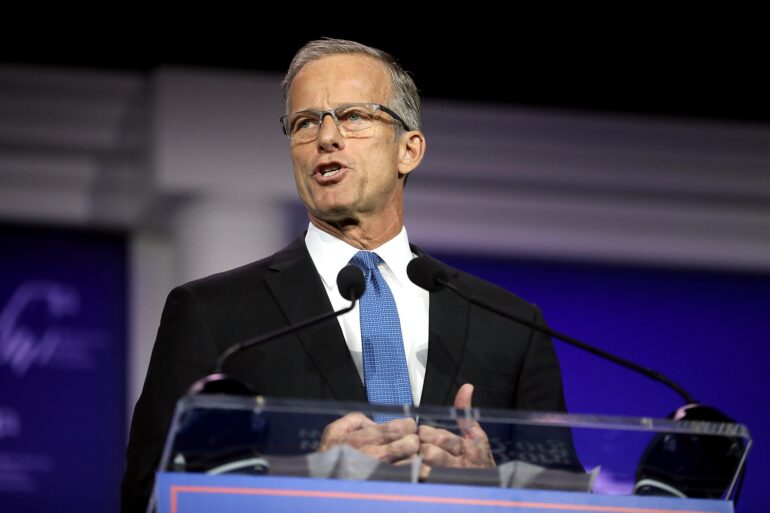After nearly a month of a paralyzed federal government, senators from both parties are now signaling a willingness to end the stalemate, as frustration rises among federal employees, unions, and an increasingly weary public. Moderate lawmakers say an agreement could come as soon as next week.
The 30-day shutdown, which has halted basic services and paychecks for hundreds of thousands of workers, has left Capitol Hill in a mood of quiet urgency. Even some Democrats, once adamant about holding out to secure health care subsidies, are now pushing for an off-ramp.
“My assessment is that we’ve won anything that we can possibly win,” said one Democratic senator, speaking anonymously. “The costs of continuing the shutdown are going to be felt by people who are going to food banks and federal employees.”
With the expiration of Supplemental Nutrition Assistance Program (SNAP) benefits expected to leave 42 million Americans without support this weekend, both parties face mounting political and moral pressure. Senate Democrats privately acknowledge that the political optics—once in their favor—could soon shift against them if the shutdown drags on.
Some, like Sen. Michael Bennet of Colorado, are framing the stalemate as a moral victory, arguing that Democrats have “demonstrated that we are fighting for health care for all Americans.” But Bennet conceded that “Republicans have won their battle to increase health care costs,” after GOP negotiators refused to extend Affordable Care Act subsidies set to expire in December.
Senate Majority Leader John Thune of South Dakota, who has led Republican efforts to reopen the government, says Democrats now appear ready to negotiate in earnest. “They’re looking for an off-ramp,” he told reporters. “It’s just a question of whether or not they are at some point willing to take ‘yes’ for an answer.”
Thune has offered Democrats a vote on their own proposal to extend health care subsidies, once the government reopens. He has also pledged to restart the appropriations process and discuss long-term fixes to health care policy—but only after the shutdown ends. “As soon as they’re ready to open up the government,” he said, “we will ensure that they have their chance to get their legislation voted on.”
Moderate Republican Sen. Lisa Murkowski of Alaska echoed the growing consensus, saying bipartisan talks have “picked up significant momentum.” “We are well past time to have this behind us,” she said. “This doesn’t reflect well on anybody, and it is hurting real people in real time.”
For Democrats, the calculus is changing quickly. The American Federation of Government Employees, representing more than 800,000 workers, urged Congress to “end this shutdown today.” And with gubernatorial elections in Virginia and New Jersey approaching, party strategists say a clean resolution could allow Democrats to claim a political win while averting deeper economic pain.
Sen. Jeanne Shaheen of New Hampshire, who has been working with Republicans on a compromise, said “a lot of positive discussions” are underway. Sen. Gary Peters of Michigan added that progress remains “a path in the right direction,” even if slow.
Both sides appear to recognize that continued brinkmanship could have lasting consequences. “The stakes are getting higher,” Thune warned. “As the shutdown drags on, it becomes more painful for more people.”
Now, with SNAP benefits set to expire and public patience wearing thin, the once intractable shutdown may be approaching its end—not because either side prevailed, but because the country has run out of time.
[READ MORE: Judge Orders Daily Oversight of Federal Immigration Raids in Chicago]





